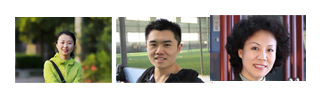Recently the resignation of Yu Ying, a Chinese female doctor from a famous public hospital has provoked heated discussions among the Chinese netizens. Yu Ying was an emergency care physician at the Peking Union Medical College Hospital before her resignation. She has a Weibo, the Chinese equivalent of Twitter, with the name, “Superwoman in the Emergency Department” and has more than two million fans.
Her first post announcing her resignation was forwarded and commented on more than 10,000 times by Chinese netizens, and most were supportive and encouraging. In the eyes of ordinary Chinese citizens, working as a doctor in a public hospital is supposed to be a stable, decent, and well paid career. Wang [1] reported that 490 out of 500 medical graduates who intended to work in a medical institute would choose public hospitals. However, Yu Ying’s choice seems to go the opposite way of this trend.
This explains why Yu Ying’s resignation has aroused such extensive concern. It is not only because she is a Weibo celebrity, but also her resignation touched on the social thinking of the healthcare system, especially the public hospital reform and doctors’s confusion about this.
In her posts, Yu Ying explained the detailed reasons for her leaving, such as dissatisfaction with using scientific research performance as an assessment standard for clinical doctors, feeling overwhelmed by the huge workload in the emergency department of a major public hospital, and being more inclined to be a general doctor rather than a specialist.
These ideas resonated among doctors and medical workers. Currently, most Chinese public hospitals tend to place too much emphasis on a doctor’s scientific research performance, using scientific achievements and Science Citation Index papers as the main standards for promotion. It has been a hotly contested issue. What do patients really need, a skillful and experienced surgeon, or a productive medical scientist? Additionally, as public hospitals are increasingly overstretched, doctors in public hospitals are overwhelmed by the increasing medical needs of patients. Statistic shows [2], at the end of 2010, there are 13850 public hospitals, accounting for 66.2% of the total medical institutions in China. The number of patients to these public hospitals reached 1.87 billion, amounting to 91.85% of the total number of annual patients in China.
Wu’s [3] cross-sectional survey showed that Chinese doctors were at high risk of occupational stress. Role boundary and role insufficiency were the most crucial factors in male and female doctors. Besides the overwhelmingly increasing medical needs, many studies have demonstrated that the status of anxiety and stress of doctors also has a detrimental effect on doctor-patient relationships. [4]
Various violent incidents have been reported on in both newspapers and the internet which shows that the conflict between doctors and patients in China is heating up. The following cases happened recently in public hospitals and are examples of these problems. Cardiothoracic surgeons and nurses were stabbed in Shanghai Xinhua hospital (2011), an otolaryngologist was attacked in Beijing’s Tongren Hospital (2011), and an intern was killed in Harbin Medical University (2012). Public hospitals seem to fall into the list of high-risk working places. Due to the occasional occurrence of such violent incidents against the doctors in the public hospitals, on 16 June, 2013, the Chinese Medical Doctor Association launched a fund for helping doctors. However, for doctors working in public hospitals, this fund is only a drop in the ocean. The working and psychological status of the doctors has not fundamentally changed.
Disappointed with the prospect of a career, and frustrated at building job confidence and security, many doctors in public hospitals are searching for new ways out. Yu Ying’s resignation is such an attempt. Similar circumstances have occurred in the past few years. In December 2012, Zhangqiang, a famous vascular surgeon, quit his job in Shanghai East Hospital, a famous public hospital, and renewed his career in a foreign funded hospital—Worldpath International Clinic. At the same time, Zhuyan, a young renal physician who worked in same hospital as Yu Ying, left his former hospital and then started a community clinic using the family physician model. As early as March 2011, around a dozen plastic surgeons left a public hospital in Shanghai and established their own Baidali Plastic and Cosmetica Centre. Exiting from the public health system does not mean that they have left their careers behind, rather it is a brand new start for doctors’ freedom in offering medical services, which is an important part of Chinese healthcare reform. A Chinese medical officer [5] also holds the opinion that talent flowing could be a good thing on the national level, and consistent with the aim of medical reform as well as the international trend.
To bring dignity back to Chinese doctors, maximize their potential, and minimize the constraints of the health system, the road for Chinese medical reform is still long.
Reference:
[1] Wang N. http://cdmd.cnki.com.cn/Article/CDMD-10114-1012354748.htm (accessed June 18, 2013).
[2] Ministry of Health. China Health Statistical Yearbook [M].Beijing: Beijing Union Medical University Press, 2011.
[3] Wu H, Zhao Y, Wang JN, et al. Factors associated with occupational stress among Chinese doctors: a cross-sectional survey. Int Arch Occup Environ Health (2010) 83:155–164
[4] Han YP, Wang SQ, Wu JJ, et al. Anxiety status and stress sources of doctors in different classes of public hospitals in Yangpu District of Shanghai. Journal of Shanghai Jiaotong University: Medical Science. 2010, 30 (4):455-458
[5] Zhou W. Good doctors leave public hospital. http://www.infzm.com/content/91561 (accessed June 18, 2013).
We have read and understood the BMJ Group policy on declaration of interests and declare no conflicts of interest.
Liu Xu, Institution of military health management, Second Military Medical University.
Yang Hongyang, Second Artillery General Hospital of CPLA.
Zhang Lulu, Institution of military health management, Second Military Medical University.

